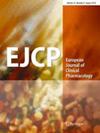A review of an investigational drug retatrutide, a novel triple agonist agent for the treatment of obesity
Abstract
Background
Obesity is one of the critical public health problems in our society. It leads to various health conditions, such as type 2 diabetes mellitus, cardiovascular disease, hypertension, dyslipidaemia, and non-alcoholic fatty liver disease. With the rising incidence of obesity, there is a growing demand for new therapies which can effectively manage body weight and improve health.
Current evidence
Currently under development, multi-receptor agonist drugs may offer a promising solution to meet this unmet medical need. Retatrutide is a novel triple receptor agonist peptide that targets the glucagon receptor (GCGR), glucose-dependent insulinotropic polypeptide receptor (GIPR), and glucagon-like peptide-1 receptor (GLP-1R). This novel drug has the potential to treat metabolic abnormalities associated with obesity as well as diseases resulting from it due to its distinct mechanism of action. The Phase III trial of this pipeline drug for treating type 2 diabetes mellitus, non-alcoholic fatty liver disease, and obesity started on August 28, 2023. The results of a Phase II clinical trial have demonstrated significant weight reduction in overweight and obese adults. Specifically, the trial reported an average weight loss of 17.5% and 24.4% at 24 and 48 weeks, respectively.
Conclusions
These findings hold promise for the development of effective weight loss interventions in this population group. There is a need for more phase III studies to provide sufficient clinical evidence for the effectiveness of retatrutide, as current evidence is limited to phase II studies and has yet to prove its worth in a larger population. Here, we aimed to provide an overview of retatrutide's safety and effectiveness in treating obesity.





